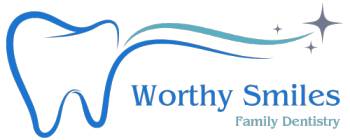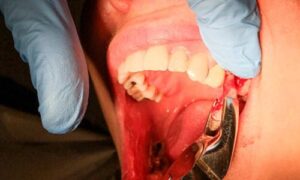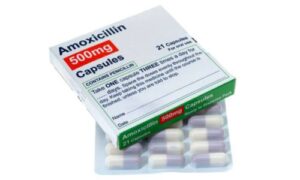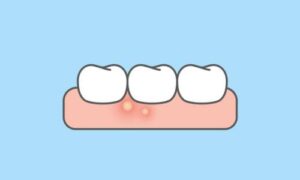Oral health is crucial to overall health and well-being.
Cavities, severe gum disease, and profound tooth loss are the three oral disorders affecting general health and quality of life. Oral illness may cause discomfort and infections that interfere with eating, speaking, and learning. Social interactions and career prospects may also be impacted. By avoiding costly dental treatment, children who get dental sealants and fluoridated water may prevent cavities and save money. Kids from lower-income homes are more likely to develop cavities than kids from higher-income families. Diabetes and tobacco use are also risk factors for gum disease.
Cavities, severe gum disease, and profound tooth loss are the three oral disorders affecting general health and quality of life. Oral illness may cause discomfort and infections that interfere with eating, speaking, and learning. Social interactions and career prospects may also be impacted. By avoiding costly dental treatment, children who get dental sealants and fluoridated water may prevent cavities and save money. Kids from lower-income homes are more likely to develop cavities than kids from higher-income families. Diabetes and tobacco use are also risk factors for gum disease.
By 8, 52% of kids have cavities in their primary (baby) teeth. One in four individuals (20–64) now have dental problems. Unplanned (emergency) dental care costs the US economy $45 billion annually in lost productivity and results in the loss of 34 million school hours annually.
Maintaining the dental health of your family is beneficial for several reasons. Their brilliant grins. Ability to chew for optimum nourishment. They are avoiding pain and toothaches. Recent studies indicate that gum disease may contribute to other health issues, such as a higher risk of
heart disease.
Easy methods exist to maintain strong, healthy teeth from youth until old life. This is how:
1. Get kids started young.
Despite significant advancements in tooth decay prevention, one in four young children exhibits tooth decay symptoms before entering kindergarten. Between 12 and 15, cavities affect half of all youngsters. As soon as a child’s first tooth erupts, often about six months old, dental treatment should start, according to Caryn Solie, RDH, president of the American Dental Hygienists’ Association, who spoke to WebMD. “A clean, wet towel or a very soft brush may be used to clean teeth. At about age 2, you may let youngsters attempt brushing independently, although supervision is still necessary.
2. Cut off the problem.
Around age 6, permanent molars begin to erupt. The pits and fissures of back teeth may avoid decay by having thin protective coatings placed on the chewing surfaces. The Centers for Disease Control and Prevention assert that sealants may considerably lower caries. Dental sealants are barely given to one in three American children. Consult with a dental professional.
3. Use enough fluoride, but not too much.
Fluoride, which strengthens enamel and reduces its susceptibility to decay, has been the most significant advancement in dental health. Americans consume fluoridated water in three out of every four cases. Consult your dentist if your water isn’t fluoridated; they could recommend applying fluoride to your teeth. Fluoride is also included in a lot of toothpaste and mouthwashes. Only a pea-sized dab of fluoride should be used on young
children’s toothbrushes. Too much might leave teeth with white patches.
4. Use floss and brush your teeth twice a day.
Gum disease and tooth decay are still significant issues, and not only for the elderly. According to the ADHA, three-fourths of teens experience bleeding gums. Along with the general guidance, keep in mind the following:
• A toothbrush should be replaced three to four times each year.
• Teenagers with braces may need to clean their teeth with specialized toothbrushes and other oral hygiene supplies. Find out how your oral health is impacted by teeth straightening. Speak to your orthodontist or dentist.
• Elderly individuals with arthritis or other issues may find handling a toothbrush or floss challenging. Using an electric toothbrush might be more convenient for some individuals. Others cover the handle of a standard toothbrush with a foam tube or bicycle grip to make it more comfortable to grasp.
• Elderly individuals with arthritis or other issues may find handling a toothbrush or floss challenging. Using an electric toothbrush might be more convenient for some individuals. Others cover the handle of a standard toothbrush with a foam tube or bicycle grip to make it more comfortable to grasp.
5. After meals, rinse or chew gum.
In addition to brushing and flossing, using an antibacterial mouth rinse may aid in preventing tooth decay and gum issues. Increasing saliva flow, which naturally removes germs and neutralizes acid, by chewing sugar-free gum after a meal may also provide protection.
6. Block hits the teeth.
Nowadays, mouth protection is a requirement for the majority of school teams. Although they help to create healthy bodies, sports, and leisure activities may damage teeth. But remember that risky pastimes like skateboarding and rollerblading may lead to accidents. Your dentist may make an individualized mouth guard. Another option is to purchase a mouth guard from a sports goods shop that can be shaped to suit your mouth by being softened in hot water.
7. Avoid smoking and smokeless tobacco usage.
Tobacco dramatically raises the risk of gum disease, oral cancer, and discoloring teeth. Consider stopping if you smoke or use chewing tobacco. Encourage your children not to begin.
8. Eat intelligently.
A balanced diet is necessary for strong teeth and gums at any age. You can receive all the nutrients you need by eating a well-balanced diet of whole foods, such as grains, nuts, fruits, vegetables, and dairy products. According to Anthony M. Iacopino, DMD, Ph.D., dean of the University of Manitoba Faculty of Dentistry, some studies think omega-3 fats, such as those found in fish, may help lessen inflammation and minimize the risk of gum disease.
9. Steer clear of sweets.
Oral bacteria break down simple carbohydrates, producing acids that may erode tooth enamel and lead to disease. Steven E. Schonfeld, DDS, Ph.D., a dentist in private practice and spokesman for the American Dental Association, says, “Sugary beverages, particularly soft drinks and fruit drinks, offer a specific concern because individuals prefer to sip them, elevating acid levels over a lengthy period.” Drinks with added carbonation may worsen the situation since they have more acidity. Another problem is sticky sweets because they stick to the surfaces of teeth.
10. Schedule a meeting.
Your dentist or dental hygienist will remove plaque buildup that you can’t brush or floss away during a routine checkup and check for deterioration. Most specialists advise checking your teeth every six months or more often if you have issues like gum disease. Regular dental examinations also reveal the following:
• Oral cancer’s early warning symptoms. If detected in time, oral cancer may be cured in nine out of ten instances. If oral cancer is left untreated, it may spread to other bodily organs and become more difficult to cure.
• Damage caused by teeth grinding. Teeth grinding or bruxism may be brought on by stress or worry. It may gradually erode the biting surfaces of teeth, increasing their susceptibility to decay. Your dentist could suggest a mouth guard worn at night to avoid grinding if your teeth exhibit evidence of bruxism.
• Gum disease symptoms. Gum disease, commonly known as gingivitis or periodontitis, is the main reason elderly individuals lose their teeth. Sam Low, DDS, professor of periodontology at the University of Florida and president of the American Academy of Periodontology, laments that the harm has already been done by the time most patients recognize any of the periodontitis warning symptoms. Your dentist should periodically
check your gums for any signs of disease.
• Medication interactions. Older people are likelier to have xerostomia or dry mouth, mainly if they are on many drugs. Saliva flow reduction raises the danger of tooth decay and gum disease. The dean of the University of Manitoba Faculty of Dentistry, Iacopino, claims that dry mouth is a side effect of up to 800 medications. Always disclose any drugs you take to your dentist, he advises. Another medication might solve the issue. Oral mouthwashes that resemble saliva are also offered.
• Oral cancer’s early warning symptoms. If detected in time, oral cancer may be cured in nine out of ten instances. If oral cancer is left untreated, it may spread to other bodily organs and become more difficult to cure.
• Damage caused by teeth grinding. Teeth grinding or bruxism may be brought on by stress or worry. It may gradually erode the biting surfaces of teeth, increasing their susceptibility to decay. Your dentist could suggest a mouth guard worn at night to avoid grinding if your teeth exhibit evidence of bruxism.
• Gum disease symptoms. Gum disease, commonly known as gingivitis or periodontitis, is the main reason elderly individuals lose their teeth. Sam Low, DDS, professor of periodontology at the University of Florida and president of the American Academy of Periodontology, laments that the harm has already been done by the time most patients recognize any of the periodontitis warning symptoms. Your dentist should periodically
check your gums for any signs of disease.
• Medication interactions. Older people are likelier to have xerostomia or dry mouth, mainly if they are on many drugs. Saliva flow reduction raises the danger of tooth decay and gum disease. The dean of the University of Manitoba Faculty of Dentistry, Iacopino, claims that dry mouth is a side effect of up to 800 medications. Always disclose any drugs you take to your dentist, he advises. Another medication might solve the issue. Oral mouthwashes that resemble saliva are also offered.
Final Thoughts
Solie says good dental hygiene may prevent most gum diseases and tooth decay. “We’re talking about brushing and flossing your teeth a few minutes daily. For a lifetime of good teeth and gums, that’s not much.














